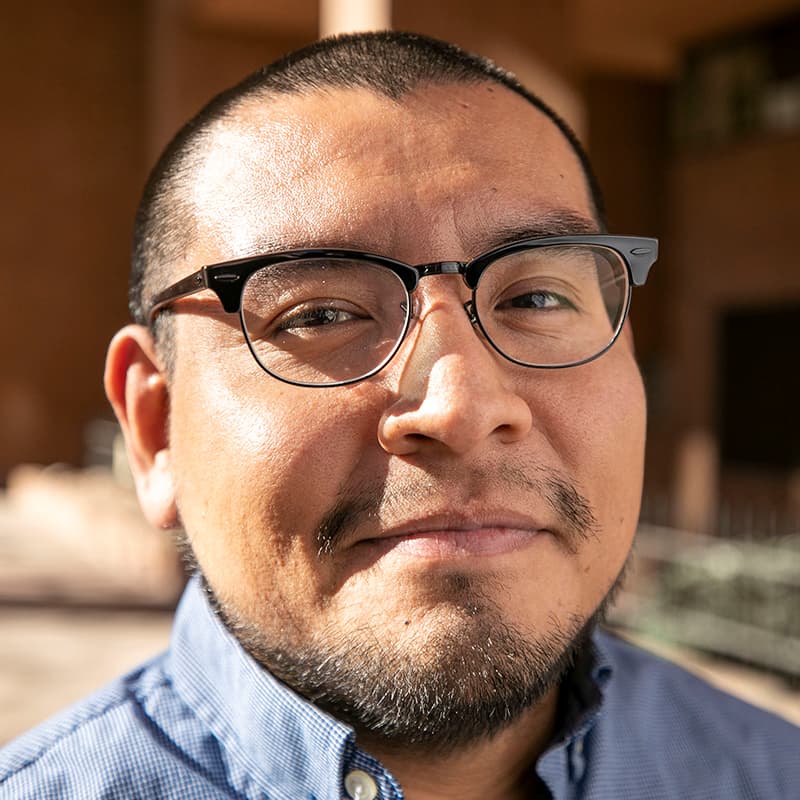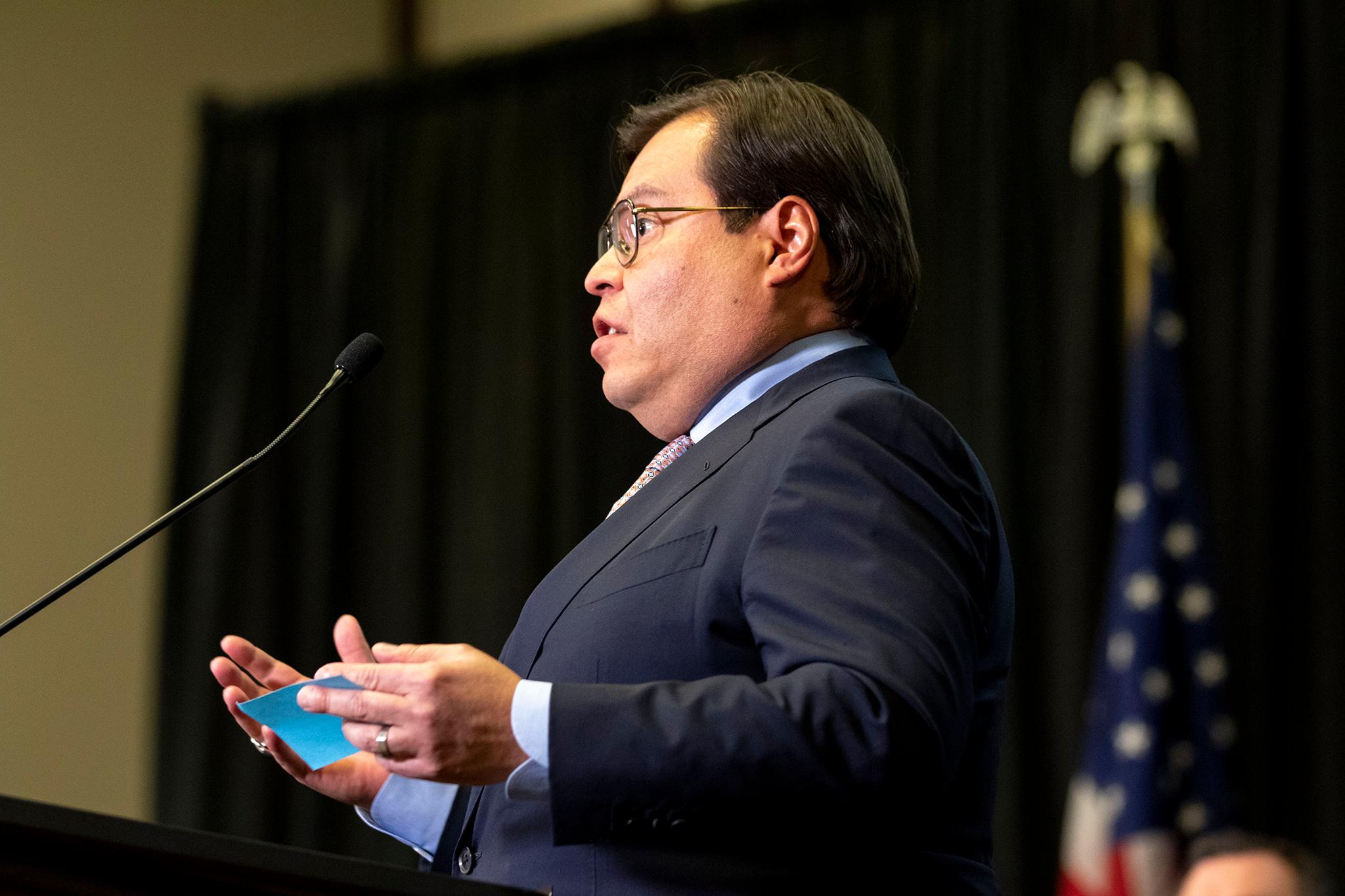As part of our 2023 voter guide, we asked each mayoral candidate on the ballot to fill out a questionnaire. You can read short biographies of each candidate and find their questionnaires here.
Please answer the following questions with a yes or no.
Should the conservation land easement on Park Hill Golf Course be lifted? No.
Assume the police force is fully staffed, should Denver hire more police officers? Yes.
On that note, would reducing the police budget to fund diversion programs and other potentially crime reducing initiatives ever be an option for your administration? No.
Should Denver plow streets after snow storms more often even if it means over budgeting for it? No.
There's a bill at the legislature that would allow a version of local rent control. If it became law, should Denver enact rent control measures? No.
Should Denver institute mandatory holds on people interacting with law enforcement who are in mental health or addiction crises? Yes.
If state law allowed them, should Denver have supervised drug use sites? No.
Is the mayor's office too powerful? No.
Does Denver need more bike lanes? Yes.
Does Denver need more parking lots? No.
Feel free to elaborate on these questions.
What are the biggest threats Denver faces in the next 30 years, and what will you do about them given that you could be mayor for 12 years?
The first is continued, crushing unaffordability. Over the last 10 years median Denver household incomes have grown by 100% while the mid priced home price grew by 200%. The second is deteriorating societal conditions as measured by rapidly rising crime rates, together with escalation in violence, and homelessness. The last is climate change.
The biggest drivers of all three are difficult or impossible to reverse at the local level. However, we must both mitigate locally and regionally and tackle our share of the drivers as a national and global community member working to reverse these three trends.
What do you admire about Mayor Michael Hancock's administration? What would you improve on?
I honor and applaud Mayor Hancock's love and regard for the people of Denver and making this place more equitable, his commitment to championing Denver's growth, and navigating through two seismic challenges: the stagnation of the Great Recession aftermath and the global pandemic at the bookends with legalization of marijuana and widespread civil unrest regarding policing during his tenure.
Big city mayor legacies take many years to measure. In the near term, I will bring economic and finance know-how to all of our oncoming opportunities and challenges, building upon his commitment to equity, which I share, in order to bring back our historical diversity, a key to our past success in a diversifying world.
What steps would your administration take to make Denver more affordable?
I differ from the rest of the pack in the way I'll tackle affordability. I see opportunities to both boost lagging incomes and temper skyrocketing living costs. But focusing on housing affordability, which is key, is not going to get us very far on the limited means we have to affect it.
For income, giving Denverites ways to build knowledge and skill to assure employment starts with my plan to build a structural organizational relationship between the city and Denver Public Schools that requires both to prioritize the learning, safety and wellness of our youth and preparing them for their version of success. We know that determinants such as stable housing
and sense of wellbeing are critically important to learning, so bringing Denver's operations to bear in helping to create those conditions is the kind of innovation and collaboration we need. While collaboration has improved over the years, substantially more needs to be done faster,
particularly as we see our students struggling. Successive superintendents have sought more of it. I see potential for similar arrangements with our city's rich higher education sector.
We must actively push to moderate housing costs by accelerating diverse and total supply of housing, including missing middle type housing and affordable housing that protects the most vulnerable. To do this I plan for Denver to issue a bond targeted at the needs today and which can harness market potential.
My plan also involves working to mitigate other rising living costs on other lines in the household budget: expanding urban farming to increase nutritious food access, building our city to make transit and active modes a real option for many more of our residents.
Finally, I am the only candidate calling for a moratorium on sales tax increases, which I will hold for five years. Recent sales tax hikes add up to ____ percent. The regressive impact on our hardworking low and moderate income families can't continue amidst today's inflation and economic instability.
Together, our city's efforts will add up to meaningful improvements in homeowners' lives.
Sweeps or no sweeps? You can add some nuance here, but you must answer "I would continue the sweeps" or "I would end the sweeps."
My administration will continue sweeps of unauthorized encampments to protect health and safety for all. But my administration will also work to address specifically, at scale and urgently the most emergent and unserved aspect of homelessness in our city: people living and dying unhoused on our streets. To do this one of my first acts as mayor will be to declare an emergency to manage the unhoused crisis in Denver with specific disruptive and transformational proposals to address the crisis.
Under the local emergency declaration, the city will identify a location and build a temporary field treatment center employing many of the similar strategies the City developed to prepare for a catastrophic COVID surge. Teams will be deployed with qualified mental health clinicians to admit persons who are of danger to themselves and/or others either voluntarily or involuntarily.
My team will work with Denver's Legislative delegation to adopt laws that enable involuntary holds to be used in Colorado to support the completion of the standard of care for mental and substance addiction disorders is necessary to meet a high ethical burden that I will demand for every stage of my plan's implementation. I will move my office to the temporary field treatment center as long as anyone is receiving treatment there.
As we see results from meeting this need with direct support for the first time, I expect that unauthorized encampments will decrease and the need for sweeps along with it.
Permitting wait times in Denver have increased significantly, sometimes slowing down how fast housing can be built. What do you think is the problem and how would you fix that?
The short term problem is one of logistics in reacting to a surge of permitting activity, which was compounded by the enactment of far-reaching zoning changes, such as the inclusionary housing requirement. Bringing logistics expertise to the complex permitting processes, either through contracting or hiring, will improve permitting timelines in the near term. With respect to the expansive zoning changes, my administration will work with the city council to phase in implementation of new rules in order to avoid these bottleneck situations caused by abrupt policy implementations.
What are your thoughts on converting downtown empty office spaces into residences?
This is consistent with my plan for revitalizing our ailing downtown, particularly as commercial office building supply continues to grow while demand remains reduced from work from home dynamic. Our downtown must adapt to the needs of our future economy. Differently from many others and since not all buildings' designs are conducive to housing use, I'll go further and encourage innovation in mixed use adaptive reuse of our downtown buildings. This includes maker space, arts and culture space, retail, day care and other uses in addition to housing.
Black-owned businesses like Coffee at the Point and Wah Gwaan Brewing Company have been shutting down. Should the city intervene to preserve Black entrepreneurship, and if so, how?
There should be programs that provide rescue assistance to Black entrepreneurs, particularly those that serve communities of color. The programs should be combined with technical assistance and growth thresholds that lead to long-term financial stability.
How do you feel about land acknowledgements?
I strongly support land acknowledgements. Given my native ancestry and commitment to understanding the power of this land, it is right and the least we can do to honor those who stewarded it for thousands of years before the arrival of European explorers and settlers.
What are your thoughts on a flavored tobacco ban?
I support such a ban. These products are directly intended to appeal to youth and are as harmful to health as their non flavored counterparts. In and of itself, that is a dangerous misunderstanding that must be decisively fought.
Describe specifically how your office will demonstrate transparency?
I strongly believe in leading with the right tone at the top on transparency. With this in mind, I am committed to always sharing more than less about our operations and rationale for them with the public, including by actively engaging in press briefings and specific releases on issues of concern to Denverites. I will make my calendar public and share key dashboard data that I will use to consistently monitor the service our city is delivering. I support the continued transparency of our city's checkbook. I will specifically disclose any and all support that my office receives, including from the philanthropic and nonprofit communities on a monthly basis.
When's the last time you rode RTD?
Last week.
Vision Zero, Denver's initiative to eliminate traffic deaths, could be going better. What would you do to improve that?
As mayor, I will reduce traffic speeds, starting with high injury networks and areas where design doesn't support the current speeds. We know excessive speed increases the severity of injuries and probability of fatality for all involved in crashes, by slowing. My administration will enhance enforcement of speed limits while innovating and expanding the use of traffic calming measures and protective designs (such as protective bike lanes, signal timing among others) throughout the city.
Using technology more broadly, such as speeding cameras, and restoring our police officer ranks while growing the use of civilian police teams will drive better and more equitable enforcement citywide. Behavior violations such as distracted driving can be more effectively enforced through policing.
Acting upon citizen provided data such as hazard maps and becoming accountable in communicating on our plans to deliver solutions is a must-and our city can do that.
The EPA has declared Denver a "severe" violator of federal ozone standards. What actions would you take to reduce ozone precursor emissions within the city?
The principal strategy has to be reducing single occupancy vehicle travel by making other modes of mobility equitable and efficient options, as discussed previously. This could be a component of a grand bargain with our regional neighbors to similarly reduce single occupancy VMT and precursor emissions from oil and gas operations.
What's the worst intersection in Denver?
West Colfax Avenue and Federal Boulevard.
Need more help voting? Check out the rest of our voter guide here.











